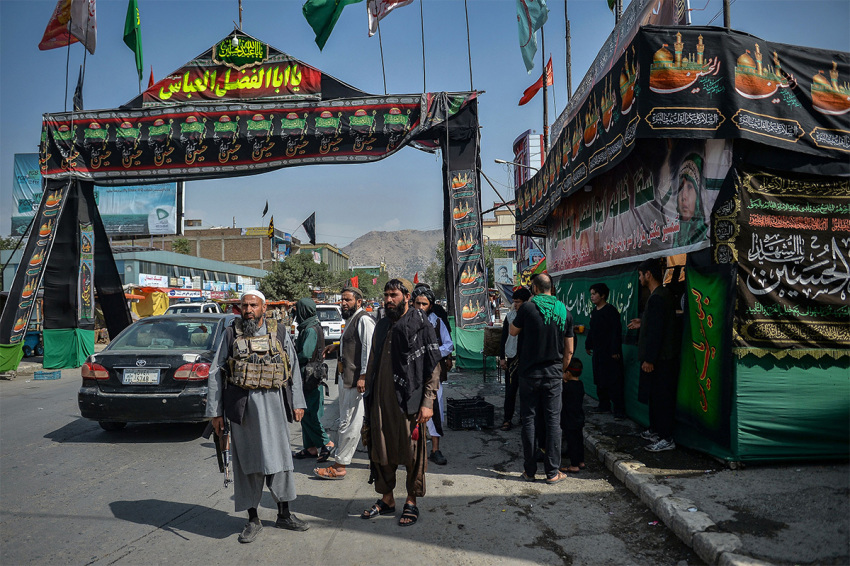Christians in Afghanistan facing 'new phase' of crisis, have lost contact with US ministries

Christian ministries have lost contact with numerous partners in Afghanistan as the embattled country enters a “new phase” of the crisis sparked by the Taliban takeover, the head of a U.S.-based ministry has said.
William Stark, International Christian Concern’s regional manager for South Asia, told The Christian Post that when the Taliban took control of much of Afghanistan following the drawing down of U.S. troops in August, many ministries working with the country’s underground church worked tirelessly to evacuate at-risk Christians.
Now, as Christians trapped in the country face an uncertain future, many have gone silent, desperately seeking to avoid the probing eyes of the Taliban.
“Christians are now in hiding because of active threats against their community,” Stark said.
He shared stories of how Christians continue to face threats from members of the Taliban. In one situation, an Islamic extremist threatened to kidnap a Christian man’s daughters and marry them off to members of the Taliban. In another, a Christian man received a letter from the Taliban saying his house belonged to them. Christians have also been warned to refrain from gathering.
“Even within the networks that we have, a number of people have changed their phone numbers because it’s simply not safe anymore,” Stark said. “Their work to lie low in the country makes it hard for someone on the outside to stay in contact.”
Many estimate the Christian population in Afghanistan to be as many as 12,000, making it one of the country’s largest religious minorities. Afghanistan is over 99% Muslim.
Though all religious minorities in Afghanistan are at risk under Taliban rule, Christians are particularly vulnerable, Stark said, because the vast majority of them have converted to Christianity from Islam. Under Sharia law, leaving Islam is a crime punishable by death.
“We talk about Christians as a religious minority, but to the Taliban, they’re seen as apostates, criminals and people that deserve to be punished,” Stark explained.
As persecution continues to increase, Afghan Christians need “help from the outside” to escape their circumstances, he said.
“It's going to take a diplomatic process by the U.S., the U.K. and other countries that are going to allow them to leave that country,” he said. “Essentially, what they need is some sort of special status that would allow them to travel outside of Afghanistan.”
Many Aghan Christians are “rural, uneducated and don't have a passport,” he added, so many of them are unable to acquire the documents needed to leave the country.
“Because they don't have passports, and they can't work with the government in order to issue them a passport, it makes it very challenging for them to be able to leave the country,” Stark said.
ICC has been advocating for the U.S., the U.K. and other governments to create a “special status” for Afghan Christians to give them a legal avenue to leave Afghanistan and seek refugee status elsewhere in the world.
As some voices are calling on the government to limit the number of refugees entering from Afghanistan to the U.S., Stark called for “nuance.” He posited that only allowing Afghans who might be targets of Taliban violence due to their U.S. affiliations into the country leaves little room for Christians.
“Vulnerable populations, like the Christian community, often don't fall within that the group of people that work with the military,” he said. “If we draw a hard line and say only people that did that can be allowed to leave and come to the United States, we're essentially putting a line through most Christians being able to get out of the country.”
“We have to make sure we’re not casting out vulnerable populations who are very deserving of resettlement,” he added.
ICC is not the only persecution watchdog to share reports of missing Christian contacts in Afghanistan. Nehemiah, from Forgotten Missionaries International, recently shared with Mission Network News the story of a man named Abdar who disappeared after traveling to Afghanistan for evangelism purposes.
“He was with us for the last few months,” Nehemiah said. “He is from Afghanistan, studying in Pakistan, and he said last month that he was going to Afghanistan for evangelism purposes. It’s been more than a week since we have been unable to hear from him. We have lost contact.”
Nehemiah said: “Christians in Afghanistan will be bracing themselves. Will they be forced to convert back to Islam? Will they be killed if they refuse?”
In late August, human rights group ADF International urged the international community to address the “dire plight” of religious minority communities in Afghanistan.
“As disturbing accounts of killings, harassment and intimidation against them are rapidly emerging, we urge States and the international community to give utmost attention to these persecuted minorities and guarantee the conditions for their prompt and safe exit from the country, irrespective of whether they have valid travel documents,” ADF said.



























